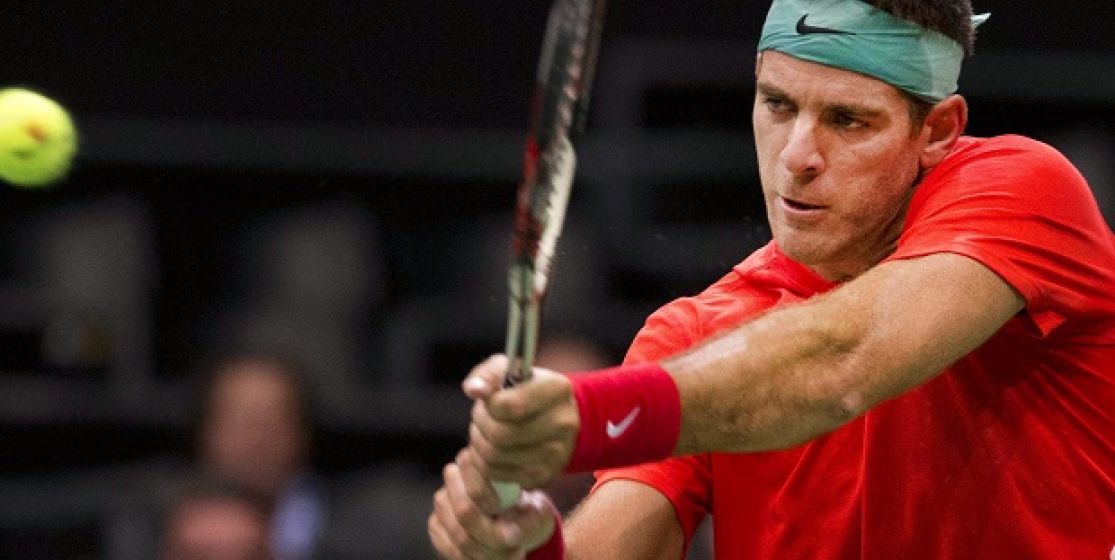Juan Martin Del Potro is expected to walk back on the courts, next week, at the Delray Beach tournament. A return we weren’t suspecting after almost two years out of the game. But the Argentine isn’t the first to try - and maybe succeed - in having an improbable come-back after a long-term injury.
Goran Prpić
In 1985, Goran Prpić is 21 years old and has a bright future ahead of him, as his victory against Yannick Noah in the BNP Paribas Davis Cup enables Yugoslavia to join the World Group. But a few months later, he suffers a dramatic knee injury in Key Biscayne. Having gone through multiple surgeries, Prpić spends two years off the courts. When he comes back, he’s not the same player. His step is heavier, and over all, he has to wear an impressive knee pad, which he will never leave. Despite this serious handicap, the player who has since become Croatian manages to enter the Top 20 in 1991, and win a bronze olympic medal the following year, alongside his friend and fellow countryman, Goran Ivanisevic. He definitely puts away racquets and kneepads in 1996, after announcing his retirement.
Thomas Muster
Just like Prpić, the Austrian’s career almost ended in Key Biscayne. But not because of an injury on the court. On the brink of his final against Ivan Lendl, Muster is ran over by an intoxicated reckless driver, in front of his hotel. « This reckless driver headed right at us at a speed of 60 mph. I was thrown about twenty feet », tells the one who almost lost his left leg in the accident. Stronger than the pain, the lefty resumes training just after leaving hospital with his leg in a cast, and a bench designed especially for him. The image goes worldwide and Musterminator is born. Six months later, the future winner of Roland-Garros is already back on courts at the Barcelona tournament, where he reaches the quarter-finals.
Tommy Haas
« I don’t know what to expect, I’m trying to enjoy it». Last June, Tommy Haas was on a carpe diem mode for his return on the circuit after a year and half on the sidelines. It must be said that the German has now become a specialist of returns. World number 2 in 2002, Haas lives a nightmarish year. His father is in a coma following an accident, and he must go through surgery for a problem with his shoulder. He’s almost done with tennis, but he comes back in 2004 and little by little, comes back to his best level to finally return to the Top 10 in 2006. Same old song six years later, this time after a hip injury. Now 34 years old, he defeats Roger Federer in the final of the Halle tournament. « It's a special moment knowing that four months ago I didn't know if I would be able to play at this level again. It's a life lesson. » One more.
Paul-Henri Mathieu
Prodigy in the Junior category and huge hope for French tennis, Paul-Henri Mathieu hasn’t been spared by injuries during his career. In 2011, it is thought that he is lost for tennis, due to osteoarthritis affecting his left knee. But PHM hangs on, writes a book about tennis to keep himself busy, and returns to the courts after 15 months on the sidelines. A few weeks later, he manages to defeat John Isner in Roland-Garros, after a six-hour long battle. Mathieu, who had the reputation of being mentally fragile after the BNP Paribas Davis Cup final lost against Russia in 2002, commands respect from both the spectators and the other players. « I have something more, which some players haven’t got », says the man of the day. We believe him.
Gustavo Kuerten
There are successful comebacks, and some which are less successful, but which can’t leave you indifferent. Gustavo Kuerten’s stands in the second category. In 2008, the Brazilian is back at Roland-Garros, where he revealed himself to the world in 1997, and where he lived his most beautiful emotions with three titles and a unique relationship with the Paris crowd. Guga is still suffering from this hip injury which left him off the courts for two years. « It hurts when I’m sat down, when I sleep, when I play. It’s hard, very hard. » Never mind, Kuerten comes back smiling to end his career at the Porte d’Auteuil. The result is anecdotal, as he loses in three sets against Paul-Henri Mathieu. But that’s not the point. The spectators of the Central court give their protégé a last standing ovation, and he leaves with…a bottle, filled with his beloved Parisian clay.






